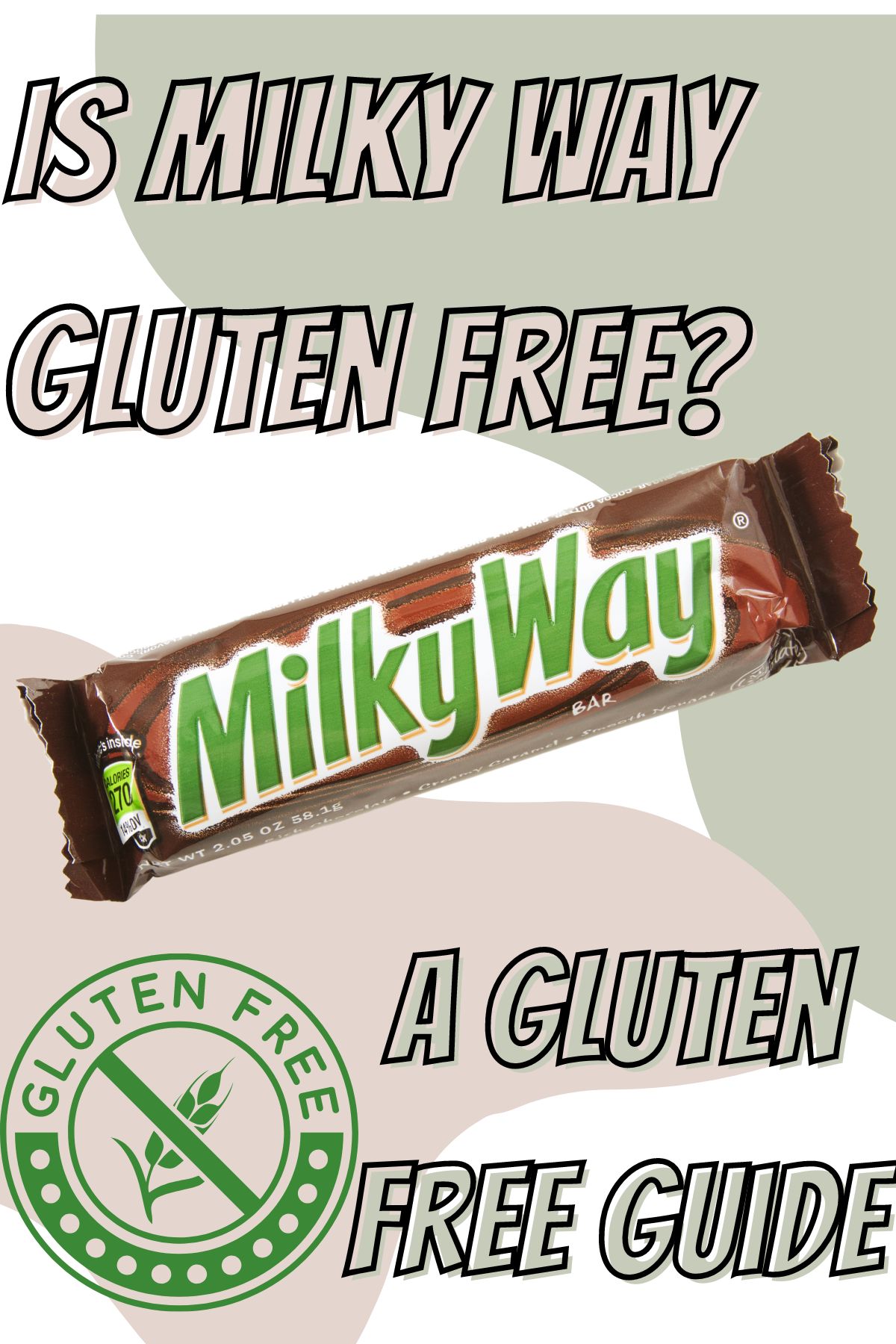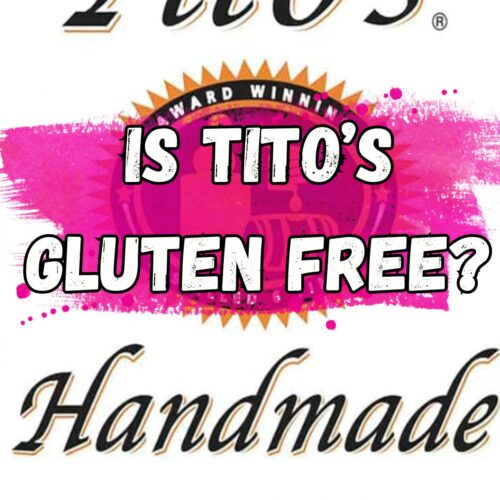If you are a fan of chocolate bars and have celiac disease, you may wonder is milky way gluten free? In this post we are going to get into the nitty gritty of milky way chocolate bars, the gluten-free diet, and if these are safe for you to have.

is milky way gluten free
Milky Way bars, produced by Mars, Inc., are not considered gluten-free. The standard Milky Way bar contains ingredients such as barley malt, both of which contain gluten. Therefore, individuals with gluten sensitivities, celiac disease, or following a gluten-free diet should avoid consuming Milky Way bars. It’s essential to always read the ingredient labels and check for any gluten-containing ingredients to ensure the product is suitable for your dietary needs. If you’re looking for gluten-free alternatives, there are several brands that offer gluten-free chocolate and caramel bars.
What are the ingredients in a milky way?
Milk Chocolate (Sugar, Cocoa Butter, Skim Milk, Chocolate, Lactose, Milkfat, Soy Lecithin, Artificial Flavor),Corn Syrup,Sugar,Hydrogenated Palm Kernel Oil and/or Palm Oil,Skim Milk,Less than 2% – Milkfat,Cocoa Powder Processed with Alkali,Barley Malt Extract,Lactose,Salt,Egg Whites,Artificial Flavor.
Please note that the ingredients may vary slightly depending on the specific version or country of production. Always refer to the product packaging or contact the manufacturer directly for the most accurate and up-to-date ingredient information.
What Milky Way ingredient is not gluten free?
The following ingredients that are not safe for those with celiac disease or a gluten intolerance are: barley malt extract
The ingredient that is not safe for individuals with celiac disease and gluten intolerance in a standard Milky Way bar is “Barley Malt Extract.” Barley is a gluten-containing grain, and products derived from barley, such as barley malt extract, also contain gluten.
Gluten is a mixture of proteins found in wheat, barley, rye, and their derivatives. In individuals with celiac disease or gluten intolerance, consuming gluten can trigger an immune response and cause damage to the lining of the small intestine. This can lead to various symptoms and long-term health complications.
Since barley malt extract is derived from barley, it contains gluten. Therefore, individuals with celiac disease, gluten intolerance, or those following a gluten-free diet should avoid products that contain barley malt extract, including Milky Way bars.
It’s important for individuals with specific dietary restrictions to carefully read ingredient labels and look for gluten-free certifications or alternative gluten-free products to ensure their safety and well-being.
Milky Way is made by Mars and they are most well known for their Mars Bars. They are located and headquartered in Virginia in the United States. While they do not list their gluten-free options on their website for those with celiac disease and or a gluten sensitivity, there are others (Like Hershey) that do. Always be sure to look at an ingredients list. By looking for gluten ingredients on any ingredient list, that is the fastest and easiest way to know if a product is same for you.
What are gluten free candy bars if Milky Way is not gluten free
If you have a crazy sweet tooth and are stumbling around your local grocery store in the candy aisle looking for some popular chocolate bar that you hope to be gluten free, I’ve got you! So good news for any gluten free candy lover, these are safe for you to have. If you are in the rest of the world, always be sure to check the candy manufacturer and see if they have any allergen statement by the company. You always want to be sure about the risk of cross-contamination
reese’s peanut butter cups: Milk Chocolate (Sugar, Cocoa Butter, Chocolate, Nonfat Milk, Milk Fat, Lactose, Soy Lecithin, PGPR, Emulsifier), Peanuts, Sugar, Dextrose, Salt, TBHQ (Preservative). all are safe except the seasonal shapes
Hershey’s Kisses: Milk Chocolate (Sugar, Milk, Chocolate, Cocoa Butter, Lactose, Milk Fat, Soy Lecithin, Vanillin, Artificial Flavor).
Almond Joy: Corn Syrup, Milk Chocolate (Sugar, Cocoa Butter, Chocolate, Milk, Lactose, Milk Fat, Soy Lecithin, Artificial Flavor), Coconut, Sugar, Almonds, Partially Hydrogenated Soybean and/or Palm Kernel Oil, Whey (from Milk), Salt, Cocoa, Natural Flavors and Artificial Flavors.
Pay Day: Peanuts, Sugar, Corn Syrup, Skim Milk, Vegetable Oil (Palm Kernel Oil, Sunflower Oil), Contains 2% or Less of: Salt, Whey (from Milk), Partially Hydrogenated Soybean Oil, Cornstarch, Soy Lecithin, Artificial Flavor, Tbhq (Preservative).
Milk Duds: Corn Syrup, Sugar, Vegetable Oil (Palm Oil, Shea Oil, Sunflower Oil, Palm Kernel Oil, and/or Safflower Oil), Skim Milk, Chocolate, Whey Protein Concentrate, Modified Cornstarch, Resinous Glaze, Salt, Natural and Artificial Flavors, Soy Lecithin, Caramel Color.
Peppermint Patties: Sugar, Corn Syrup, Semi-Sweet Chocolate (Chocolate, Sugar, Cocoa, Milkfat, Cocoa Butter, Soy Lecithin, Vanillin, Artificial Flavor, Milk), Invert Sugar, Egg Whites, Oil of Peppermint, Soy Protein.
Dove Chocolate: Milk Chocolate (Sugar, Cocoa Butter, Skim Milk, Chocolate, Milkfat, Lactose, Soy Lecithin, Artificial Flavor). Although they are part of the Mars Wrigley corporation, their chocolate is considered to be gluten free. However, it is not dairy free.
Always be sure to read the label to identify what are gluten-free ingredients. You can never be too safe with these delicious treats! Always remember to check products gluten-free status, their stance on possible cross contamination, and see if they have a gluten-free label.
What is celiac disease?
Celiac disease is an autoimmune disorder that primarily affects the small intestine. It is triggered by the ingestion of gluten, a protein found in wheat, barley, rye, and their derivatives. When individuals with celiac disease consume gluten, their immune system reacts abnormally and launches an immune response that damages the lining of the small intestine.
This immune reaction to gluten causes inflammation and damages the villi, which are small finger-like projections in the lining of the small intestine responsible for nutrient absorption. As a result, the intestine becomes less efficient at absorbing essential nutrients such as vitamins, minerals, and fats from food.
The symptoms of celiac disease can vary widely and may include digestive issues like abdominal pain, bloating, diarrhea, and constipation. However, celiac disease can also manifest as non-digestive symptoms such as fatigue, anemia, weight loss, skin rashes, joint pain, and neurological symptoms.
The only treatment for celiac disease is a strict lifelong gluten-free diet. This means avoiding all sources of gluten in food, beverages, and even in products that might come into contact with the mouth, such as lip balms or toothpaste. By following a gluten-free diet, individuals with celiac disease can manage their symptoms, allow the intestine to heal, and prevent long-term complications associated with the condition.
LEAVE A RATING AND REVIEW!
Did you find this helpful? If you did, let me know! And let others know too by leaving a comment and star rating. Reviews are incredibly useful in helping other people find my site and make my recipes. Thank you so much!
Laura
Check out other articles and recipes
Check out my article on “is kitkat gluten free?”





Leave a Reply